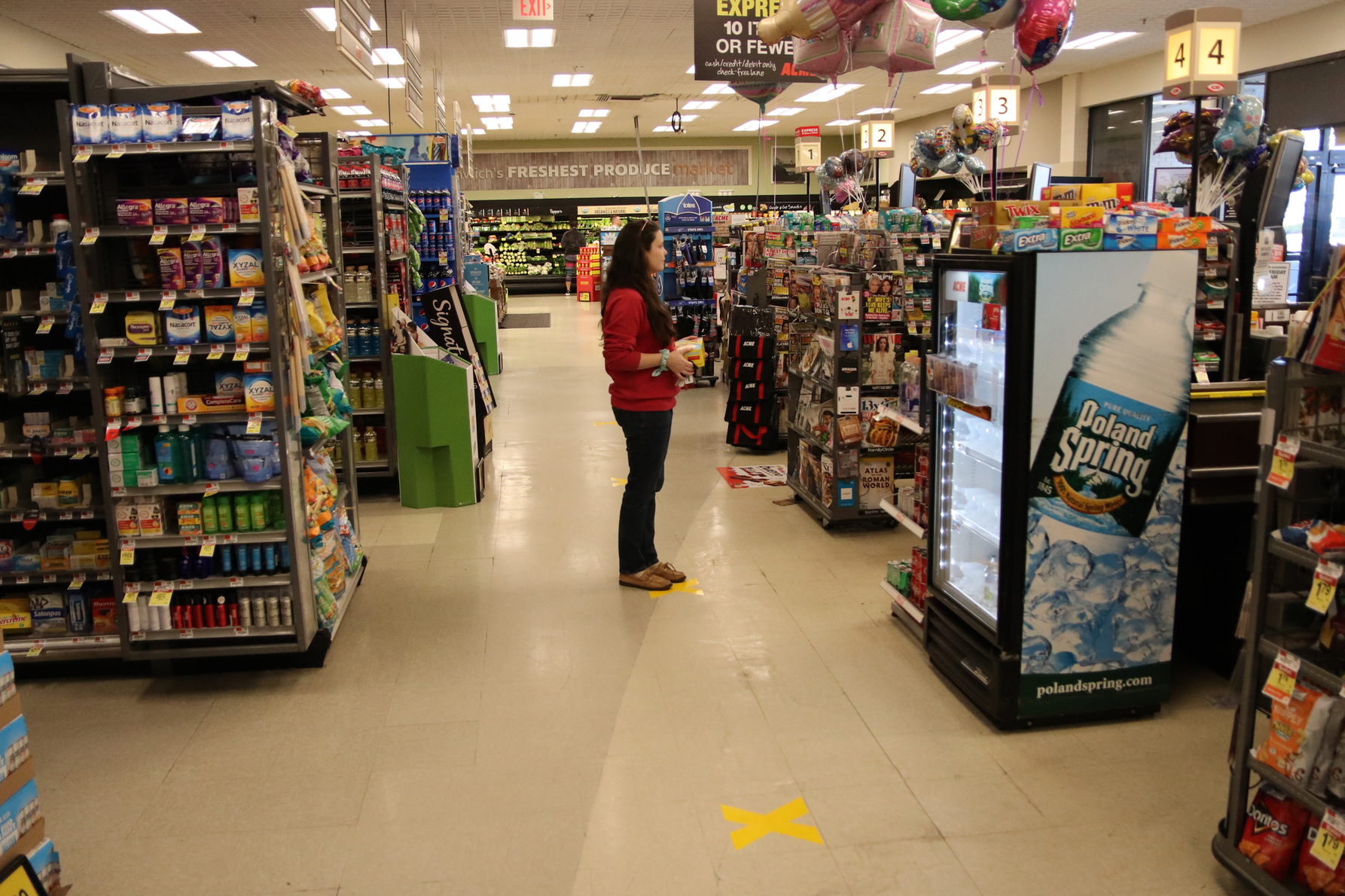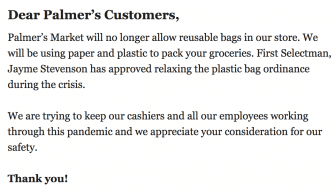 On Thursday Greenwich Police shared a list of safer shopping practices in food stores in Connecticut where safety measures have been beefed up in recent days.
On Thursday Greenwich Police shared a list of safer shopping practices in food stores in Connecticut where safety measures have been beefed up in recent days.
“GPD has been monitoring all the food stores in the Town. So far, nothing of any concern has been noted or reported,” Police said in an email Thursday morning.
The list of practices was compiled by State Senator Alex Kasser and includes the installation of plexiglass guards (aka sneeze guards) between customers and cashiers. Other practices include enhanced online ordering and delivery, closed deli counters to limit congregating, closed seating areas and in-store cafes, and stickers on the floor to indicate a six ft distance. Another practice is allowing just one shopper per family.
“Pharmacy employees, grocery store employees and others who work in the food industry are on the front lines of the coronavirus crisis,” Kasser said. “These people are essential to the distribution of food and medicine and, therefore, to the health and safety of all our residents. As essential workers, they deserve protections to ensure their own health and safety. In addition, all essential stores, from pharmacies to groceries, need guidance on how best to ensure the safety of their customers and employees.”
This is 13 minutes long, well worth watching before you grocery shop.
1. Suggested COVID-19 safe store practices from other states and countries:
● All employees wear gloves at all times
● Counters, cash registers, credit card machines (including pen) disinfected between customers.
● Customers distanced 6’ apart when in line, both inside or outside the store.
● Limit number of customers to 1 per 100 square feet of floor area of the store. A security guard (or police officer if needed) can monitor the number of customers inside by standing near the entrance and keeping track.
 ● Customers do not bring their own bags inside the store. (In Darien First Selectwoman Jayme Stevenson allowed Palmers Market to change their policy to ban reusable bags, and revert to single use).
● Customers do not bring their own bags inside the store. (In Darien First Selectwoman Jayme Stevenson allowed Palmers Market to change their policy to ban reusable bags, and revert to single use).
● Customers must use hand sanitizer before touching the credit card machine.
● Cart and basket handles wiped down with sanitizer between uses.
● Make aisles ONE-WAY so people do not pass each other in close proximity
● People waiting on line outside a store held to the requisite 6’ distance.
● Ask employees to wear masks (at least surgical masks) for their protection. (In Italy, a customer must wear a mask before entering the store.)
● Consider asking stores to increase employee wages. (Safeway and Target increased wages by $2/hour.)
2. Alternate methods of purchasing food
● Ask stores to try to implement delivery services for food and other essentials.
● Ask stores to develop pre-packaged “essentials” bags that people can pick up curbside. For instance, stores in California offer a pre-selected bag of items called “Senior Essential Bags” that they deliver to seniors’ homes. They also offer a $20 bag of 16-preselected items – produce and staples – that can be picked up curbside. And a $35 bag of ready-to-eat meals. These are just some ways that grocery stores and restaurants can make their items available without bringing customers inside.
3. Additional support for Stores (from the FDA)
For issues regarding supply chain or delivery of goods, businesses can contact the FEMA National Business Emergency Operations Center at [email protected]. This is a 24/7 operation that can assist in directing your inquiry to the proper contact.